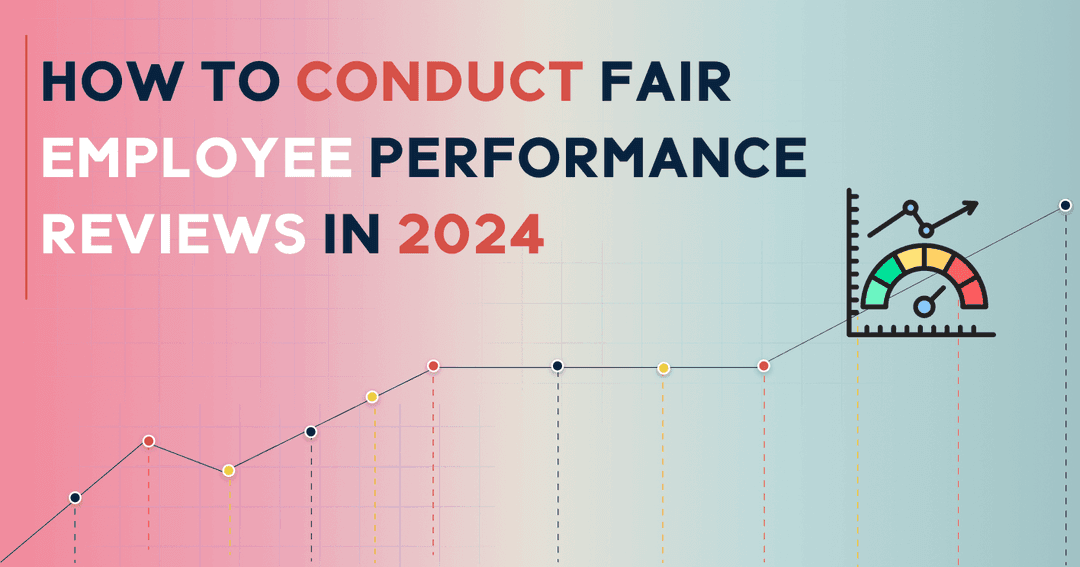
A Gallup study reveals that regular, fair, and diverse feedback leads to substantial improvements in employee performance and also prevents any means of talent attrition. Understanding this, the research highlights the significance of conducting a fair employee performance review.
Performance reviews help employees and managers align their goals and address challenges and have them feel more valued and appreciated. The process of such a review must be fair and engaging as well.
Yet another psychological study emphasizes how such a fair process of employee performance reviews does enhance the readiness of work within employees and improves their engagement within the organization.
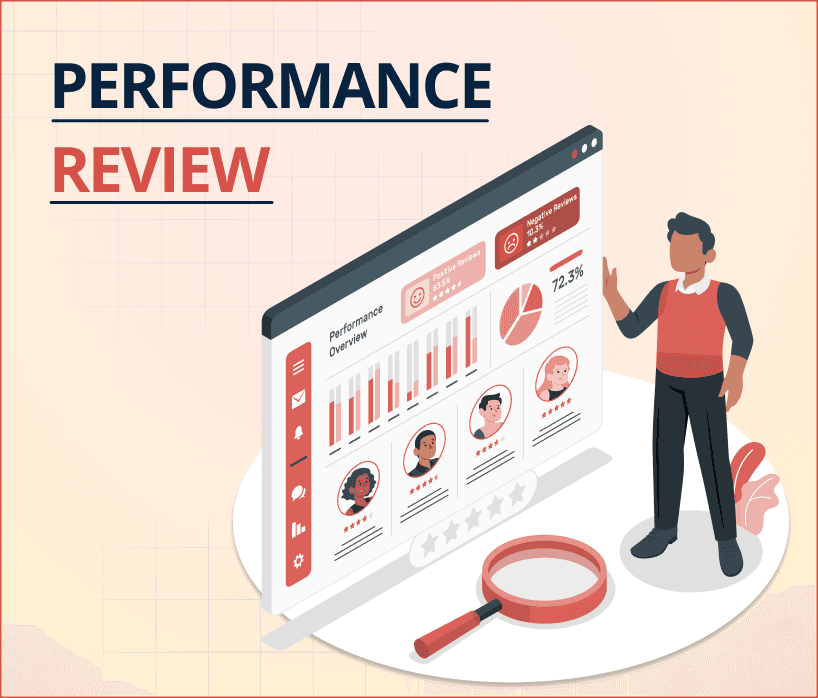
Performance review is defined as a methodically structured evaluation method wherein employees are assessed and their performance and work are discussed. This offers an opportunity for employers and employees to evaluate goals, achievements, and strengths and also address the areas that require improvement as per the assessment.
Recognizing the areas that require improvement
Addressing achievements
Providing genuine feedback
Aligning with the goals of the company
This plays a crucial role in having a more motivated workforce that is engaged and leads its way to continuous improvement in job performance. They align the goals of the company with those of the employees, addressing their achievements and providing valuable feedback to encourage more productivity.
Companies today in the year 2024 are becoming more accepting of the different types of performance reviews that cater to the dynamic needs of an organization. These are some important types of performance reviews:
Companies are taking up continuous feedback over annual feedback models, for this encourages a more consistent means of input and growth as it encourages quick adjustments and improvements on the part of employees, for it is rather continuous and is not a once in a year thing. This helps elevate the productivity rates as everything is evaluated rather methodically. Such actionable feedback helps with providing several growth opportunities.
Such reviews are based on specific projects or specific tasks that organizations conduct, which are done at the very end of each of such projects or tasks. Such a method allows more selective feedback on the challenges and achievements of the employees, assessing it on a project-by-project basis or based on performance goals and helping improve the overall performance of the employee.
This involves feedback from everyone, including managers, colleagues, managers, and other clients as well. This provides a complete perspective of an employee’s overall performance, encouraging more awareness within the employee and helping develop more interpersonal skills.
Self-assessment reviews are when employees evaluate their own performance and progress within an organization, fostering more introspection and reflection and alignment with the goals of the company and their shortcomings with other areas of improvement.
Such reviews primarily focus on setting different goals and tracking progress towards specific goals. OKRs tend to align with employees' work with much larger goals of the company and meeting with other employee goals as well, making reviews more methodical and driven towards productivity.
These reviews are more specific to behaviors or competencies, looking at communication skills, team decision-making, problem solving, and leadership. This focuses on evaluating such skills and addressing poor performance and also individual employee's role and their future growth.
Peer reviews are given by the colleagues and peers of team members who evaluate one another’s performance. Such peer feedback enhances transparency and trust among team members of an organization.
This kind of approach in performance appraisals aligns individual objectives with the organization's goals. Employees and managers set career goals and measure the progress seen with such future goals, ensuring goals and organizational strategies are set and stay aligned, leading to more productivity.
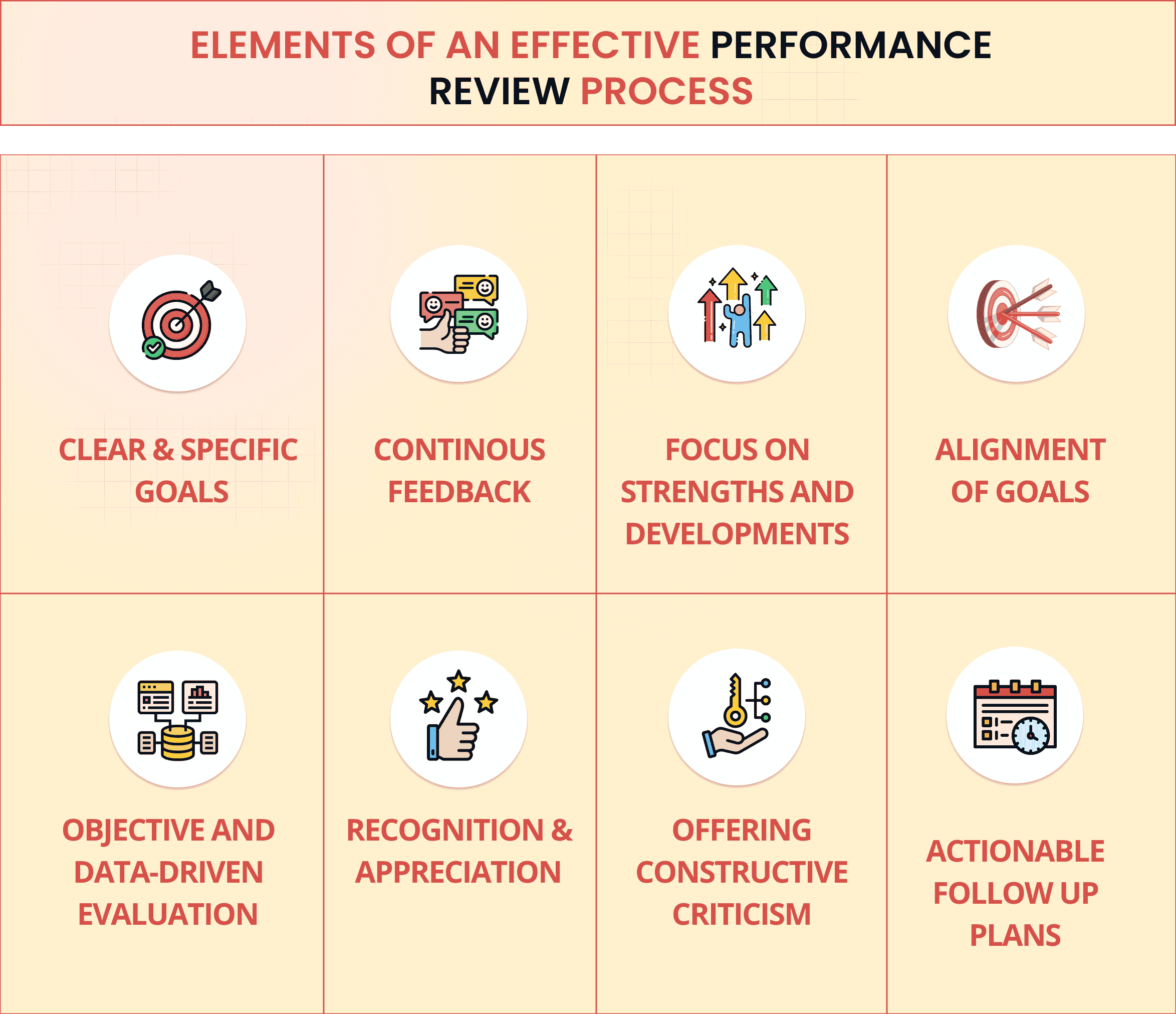
The different elements of an engaging Feedback process include some key points like -
One of the key elements of a Performance Review Process begins with specific and measurable goals for each and every employee. And regularly evaluate that their performance aligns with the organization’s goals and that it also sets a foundation for any further performance discussions. Setting such goals help with creating more opportunities for growth.
Companies are taking up regular feedback over annual feedback models, for this encourages a more consistent means of input and growth as it encourages quick adjustments and improvements on the part of employees, for it is rather continuous and is not a once in a year thing. Ongoing feedback helps elevate the productivity rates as everything is evaluated rather methodically.
The employee’s strengths provide main resources for skill development and meet overall company development goals as well. Focusing on strengths helps increase engagement amidst employees and increases their morale as well. This helps employees improve their performance as well. This leads to more career growth of the employees.
Attempt to help employees align their goals with the organization's objectives. Such employee feedback helps develop plans regarding career development that supports their long-term growth, this makes it simply vital for employee engagement and retention.
Using data-driven means to understand the different means of feedback to employees and intends to make it fairer. This strives to reduce any bias, and everything can be more transparent for employees. Such employee evaluations lead to effective employee development.
Acknowledging and recognizing employees motivates them to have more positive behavior and encourages them to be more motivated to work encouraging more organizational growth and excelling at what they do and encouraging team performance.
Offering constructive feedback is a big part in being able to provide encouragement to the employees. Addressing such areas where employees need improvement in a more empathetic manner. This helps create a two-way conversation making a positive work environment that can provide effective solutions.
Concluding each review with a more methodical action plan for the next review period. Follow ups can keep such employees who are held accountable and provide a means to measure for future progress. This helps with ensuring alignment with company standards, which also leads to more organizational success.
Creating and conducting a fair Employee performance Review cycle requires companies to follow the right steps and process in creating the same.
Such fair means of conducting Performance reviews helps employees and managers within the organization align their goals and have the employees feel more appreciated.
CompUp is a software that has advanced features for compensation planning and has solutions that simplify the entire process of developing comprehensive compensation plans, this helps build high performing teams as well.
CompUp uses real-time compensation data to create salary benchmarks that can match your pay bands with the market standards. This helps improve employee performance and retention.
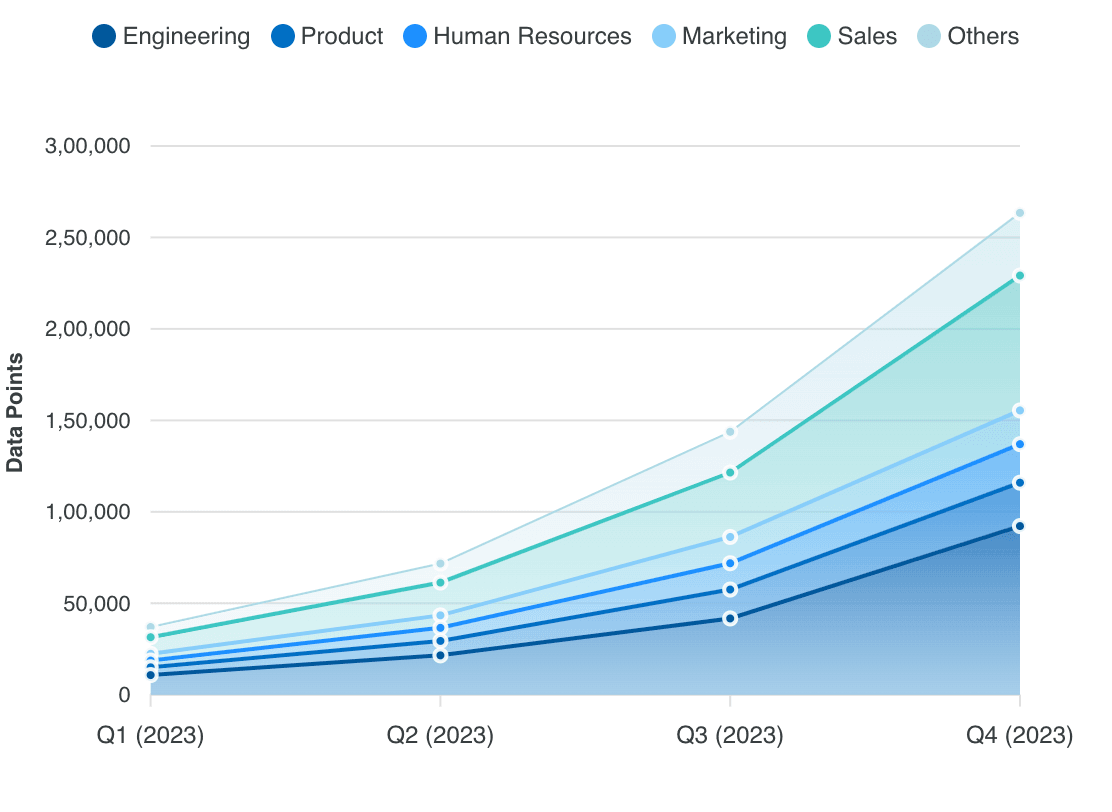
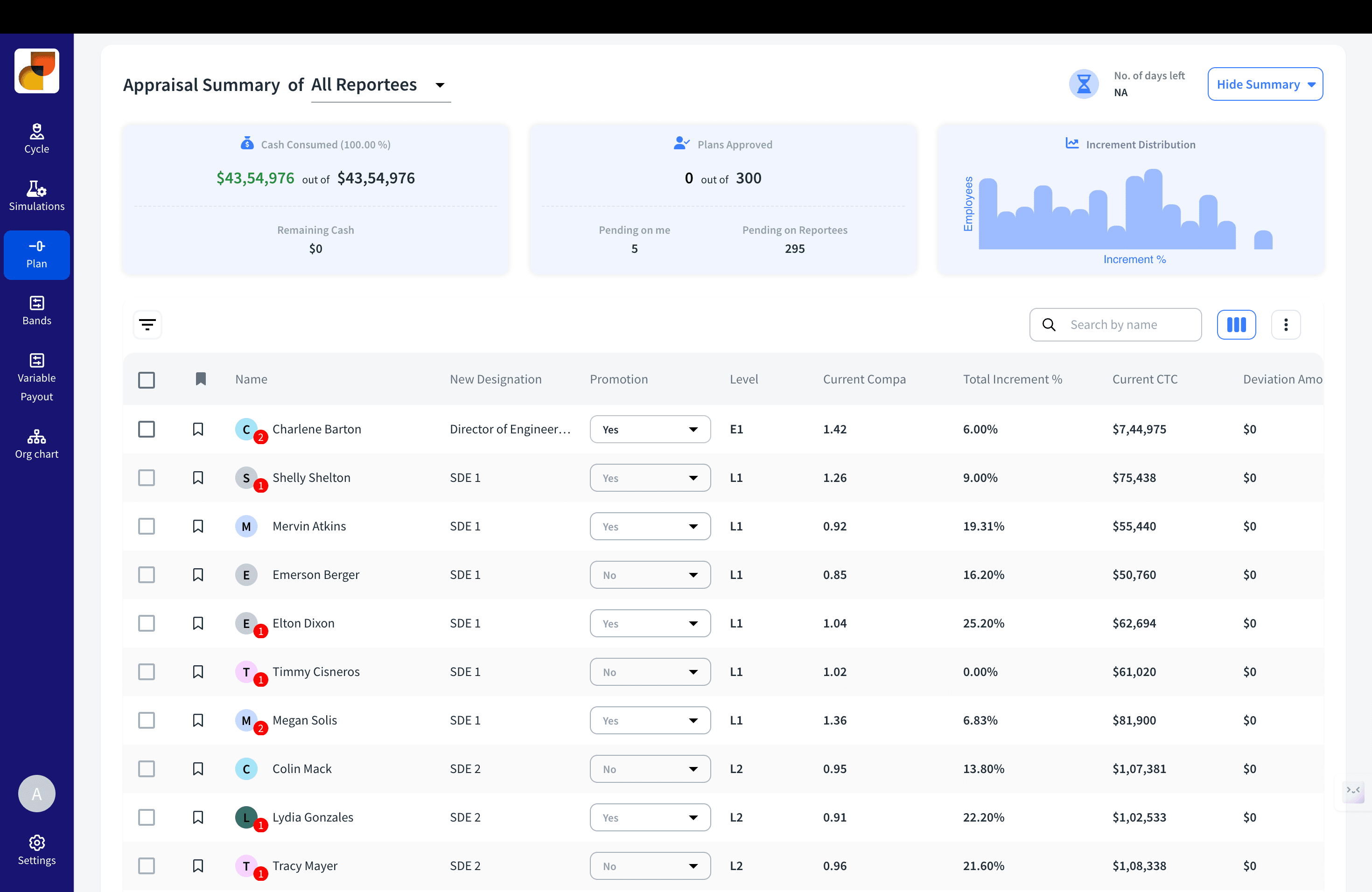
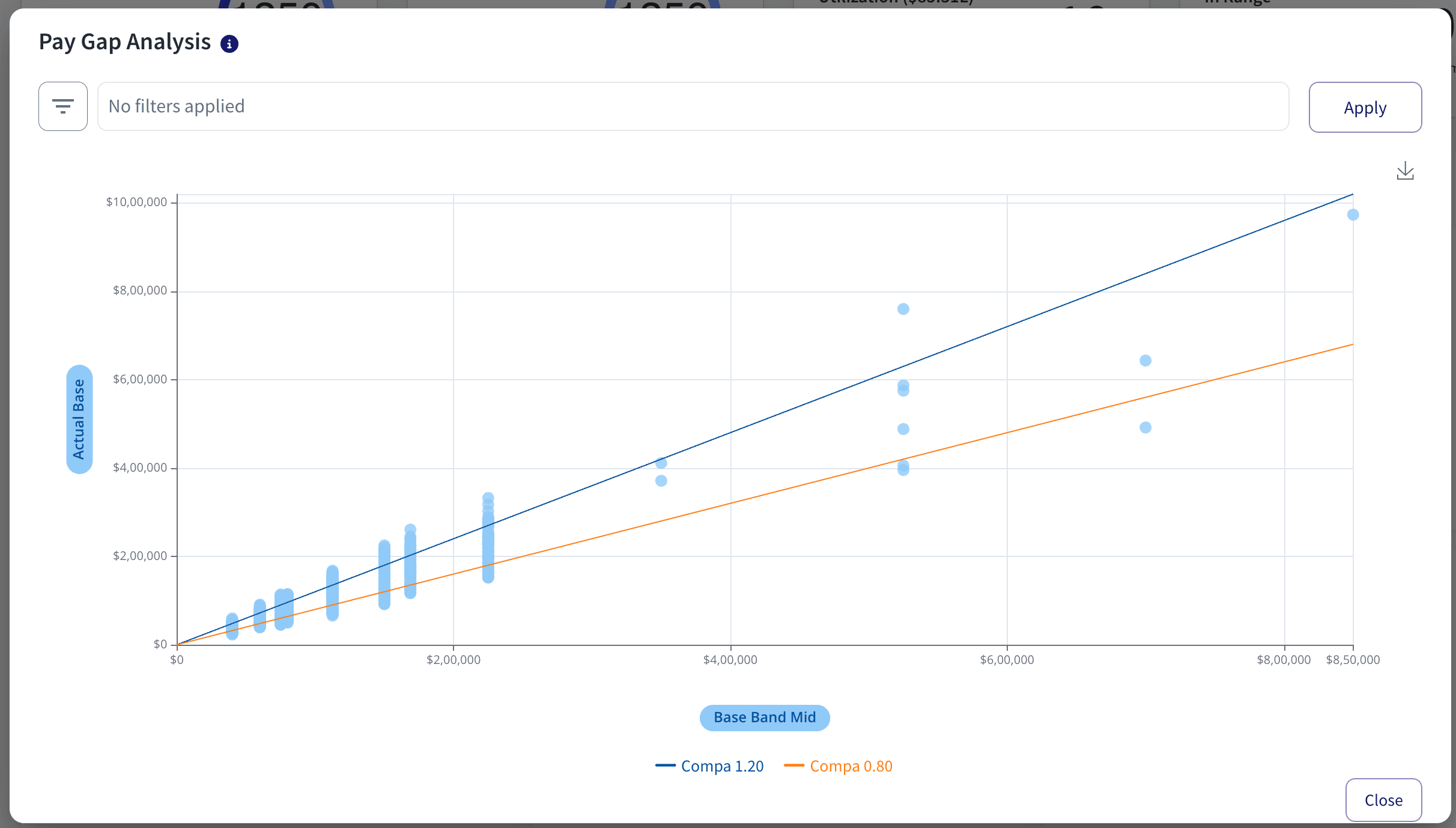
Fair and engaging performance reviews are a cornerstone of a successful workplace culture. By incorporating an effective process for this, it ensures employee engagement and retention, that the employee’s goals are aligned with the goals of the company.
So, try the platform now to understand how CompUp can streamline your compensation planning with fair pay practices.
Revolutionizing Pay Strategies: Don't Miss Our Latest Blogs on Compensation Benchmarking